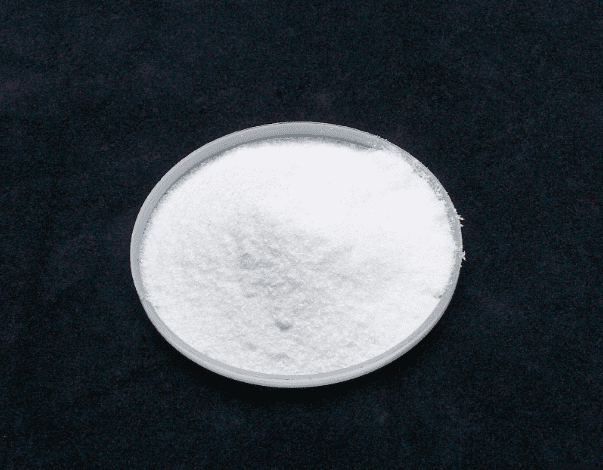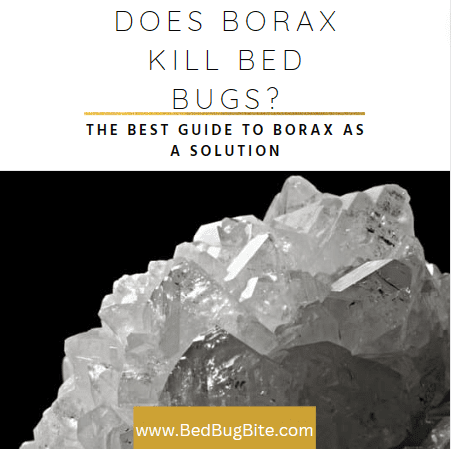Introduction
Bed bugs have long been the bane of homeowners and renters alike, infiltrating homes, hostels, and even high-end hotels. You’re probably here because you’re looking for an effective, budget-friendly solution to this pervasive problem. Among the many treatment options, you may have heard of, borax often comes up as a readily available and cost-effective choice. But does borax kill bed bugs? You deserve a comprehensive answer, not mere speculation. In this ultimate guide, we delve deep into the scientific and anecdotal evidence surrounding the use of borax against bed bugs. By the end of this article, you’ll have a thorough understanding of whether borax is a reliable ally in your fight against bed bug infestations. So let’s get started on your path to a bed bug-free life.
In this guide, we cover everything from the biology of bed bugs to the chemical properties of borax, examining how it interacts with these bothersome pests. Our aim is to present a well-rounded view based on scientific studies, including a 2013 report from the Journal of Medical Entomology, which explores the efficacy of various household dust treatments against bed bugs. By providing an all-encompassing resource, we hope to arm you with the knowledge you need to make an informed decision. Stay tuned for an in-depth look at borax’s advantages and drawbacks, how to properly apply it for bed bug extermination, and alternative treatments you might consider.
The Biology of Bed Bugs: What Makes Them Tough to Kill
Bed bugs are more than just pesky parasites; they are biological marvels equipped with features that make them notoriously difficult to exterminate. Understanding the resilience of bed bugs is a crucial step before diving into treatment options like borax. These small, wingless insects have a flattened body shape, allowing them to easily hide in cracks, crevices, and even your mattress seams. They are primarily nocturnal, meaning they mostly come out to feed on human blood at night, making it challenging to catch them in the act.
Brief Overview of Bed Bug Characteristics
Bed bugs possess an impressive ability to adapt to various environmental conditions. Their life cycle consists of six stages, from egg to adult, and they can go several months without a blood meal, reducing the efficacy of many treatment methods aimed at starving them out.
Why Some Treatments Fail
Many standard treatments fail to completely eradicate bed bugs due to their resistance to certain pesticides. Their exoskeletons are adept at blocking the entry of chemical agents, and they’ve even developed resistance to some commonly used insecticides. According to a 2016 study published in the Journal of Economic Entomology, bed bugs have shown the ability to survive even some of the more potent pesticides, underscoring the need for more effective solutions.
Introducing Borax as a Chemical Option
Given these challenges, it’s essential to explore every potential weapon in your arsenal. Borax presents itself as an intriguing option because it is a naturally occurring mineral with various uses, including pest control. Its reputation for killing other insects like ants and cockroaches makes it a candidate worthy of consideration in our comprehensive guide.
What is Borax?
As we delve into the subject of treating bed bugs, borax stands out as a versatile and accessible option. But what exactly is borax, and why is it often mentioned in the context of pest control? In this section, we’ll unravel the details about borax, from its fundamental properties to its everyday applications, all aimed to equip you with the knowledge you need to determine its efficacy against bed bugs.

Definition and Properties
Borax, scientifically known as sodium borate, is a naturally occurring mineral compound found in various parts of the world, including the United States, Turkey, and Chile. It’s often seen as a white powder that’s soluble in water, making it easy to apply in various forms. The compound has a long history of use in household cleaning, laundry, and even as a fire retardant.
Common Uses Other Than Bed Bug Treatment
Besides its potential application in dealing with bed bugs, borax is a multi-purpose agent. It’s used in making glass, ceramics, and as an ingredient in laundry detergents. Its antibacterial properties also make it popular in natural cleaning solutions. Given this versatility, borax is often readily available in stores, making it a convenient option for those looking to treat bed bugs quickly.
Chemical Composition Relevant to Insect Extermination
When it comes to its use in pest control, borax’s efficacy lies in its chemical makeup, specifically the presence of boron, which is toxic to many insects. In a report from the Environmental Protection Agency, boron compounds like borax were cited as having low human toxicity but a higher toxicity to insects, making them an interesting option for bed bug control.
How Borax Works Against Insects
Now that we have a clearer understanding of what borax is, the next logical question is, does borax kill bed bugs? The effectiveness of any insecticidal agent lies in its ability to disrupt the vital biological processes of the target species. Let’s delve into the mechanics of how borax acts on bed bugs to help you gauge whether it’s the right solution for your infestation woes.
Discuss the Mechanism of Borax Poisoning
When borax comes into contact with bed bugs, it works primarily through desiccation, absorbing the waxy coating on the insect’s exoskeleton. This leads to dehydration and eventually death. Moreover, when ingested, borax interferes with an insect’s metabolism, causing further harm. This dual-action approach makes borax an interesting option for bed bug control.
Explain How it Affects the Physiology of Bed Bugs
Borax’s action doesn’t stop at the external layer. Once it enters the insect’s system, it disrupts digestive and metabolic functions, affecting the bug’s ability to absorb nutrients and subsequently leading to its demise. According to a study by the National Pesticide Information Center, boron compounds, such as borax, affect the nervous system of insects, which contributes to its lethality.
Compare Borax’s Effectiveness with Other Chemicals
In the realm of insecticides, borax is considered less toxic to humans and pets compared to other chemical options like pyrethrins and synthetic pyrethroids. However, it’s worth noting that its efficacy can be variable. It may not be as fast-acting as some chemical treatments but offers a more natural approach to bed bug extermination.
Does Borax Actually Kill Bed Bugs: The Evidence
To arrive at a definitive answer regarding borax’s efficacy against bed bugs, it’s crucial to consider both scientific studies and real-world applications. While anecdotal evidence is valuable, empirical data helps in drawing reliable conclusions. In this section, we scrutinize the available evidence to give you a well-rounded perspective on whether borax can be your go-to solution for bed bug issues.
Summarize Scientific Studies Related to Borax and Bed Bugs
Though there are limited studies focusing solely on borax as a bed bug killer. Existing research on boron compounds shows promise. A study by Colorado State University outlines how borates, including borax, can be toxic to insects, though they don’t provide a quick knockdown. This slow-acting nature might allow bed bugs to move and spread the poison within their colonies, potentially increasing borax’s efficacy as a treatment option.
Present Anecdotal Evidence from User Experiences
Anecdotal evidence from forums and online communities suggests mixed results. Some users claim success in eliminating bed bug populations with borax, while others find it less effective. However, many agree that borax serves well as a part of a multi-pronged approach, often in conjunction with other treatments.
Drawing a Conclusion Based on Available Evidence
So, Does Borax Kill Bed Bugs? After evaluating both scientific data and user experiences, it becomes clear that borax can have a role in bed bug treatment. Though it’s not a silver bullet. Its slow-acting nature and the necessity for direct contact with the insects limit its stand-alone efficacy. However, when used as part of a comprehensive bed bug management strategy, borax can contribute to reducing the bed bug population.
How to Use Borax for Bed Bug Treatment
Choosing to use borax for your bed bug issue is one thing, but applying it correctly is crucial for achieving the desired results. Without proper application, even the most potent substances can prove ineffective. In this segment, we guide you step-by-step on how to effectively utilize borax in your battle against bed bugs. Including safety precautions and the areas that need special attention.
Step-by-Step Guide on Application
- Initial Preparation: Before applying borax, remove all bedding and wash in hot water. This kills any bed bugs residing on the sheets and pillows.
- Area Identification: Identify the most heavily infested areas, which are usually around the bed, cracks in the furniture, and other hiding spots.
- Application: Lightly sprinkle borax powder in the identified areas. Use a brush to spread it evenly.
- Duration: Leave the borax for at least 4-6 hours to allow it to work effectively.
- Cleanup: Vacuum the treated areas thoroughly to remove borax residues and dead bed bugs.
Safety Precautions and Warnings
Borax is less toxic to humans and pets compared to other chemical treatments, but caution is still advised. Wear gloves and a mask during application and keep pets and children away from treated areas. Always follow the manufacturer’s guidelines on the borax packaging for optimal safety.
Discuss Dosage and Areas to Focus On
The dosage and focus areas are key to a successful treatment. Generally, a light but thorough application is advised. Special focus should be on crevices, cracks, and other bed bug hiding spots. As these are the areas where bed bugs are most likely to come into contact with borax.
The Pros and Cons of Using Borax for Bed Bug Extermination
The decision to use borax in tackling your bed bug problem should be well-informed. Understanding both the advantages and limitations of this method will help you devise a more effective bed bug management strategy. In this section, we offer an unbiased evaluation of the pros and cons of using borax for bed bug extermination. Aiming to give you a balanced view.
Pros to Using Borax
One of the major advantages of using borax is its cost-effectiveness. Compared to professional extermination services or specialized bed bug products, borax is relatively inexpensive. Additionally, it is easily accessible, commonly found in grocery stores and online. Given its widespread use in household cleaning, you may even already have it in your home.
Cons to Using Borax
While borax has its merits, it also comes with limitations. The first is safety; although considered less toxic to humans and pets, improper usage can still pose health risks. Second, borax’s effectiveness varies across bed bug life stages. Eggs, for instance, are less susceptible to borax treatment. Additionally, borax needs to make direct contact with bed bugs, meaning you could miss some hiding spots during application, leaving pockets of infestation untouched.
Long-Term Implications of Using Borax
Continued use of borax may result in reduced effectiveness as bed bugs can develop resistance to chemical treatments over time. Therefore, it is best used in conjunction with other methods for a more robust and enduring solution.
Conclusion
After delving into the complexities of using borax as a bed bug treatment. It’s evident that while it may not be a magic bullet. It does have a role to play in your overall bed bug eradication strategy. Before opting for borax, it’s crucial to weigh its pros and cons. Particularly its limited effectiveness across all bed bug life stages and the need for direct contact with the pests.
Key Points on the Effectiveness of Borax Against Bed Bugs
So, Does Borax Kill Bed Bugs? In a nutshell, borax can serve as a cost-effective and relatively accessible option for bed bug control. However, it should be used wisely and in conjunction with other treatments. The slow-acting nature of borax has its advantages, such as potentially affecting entire colonies, but its limitations cannot be ignored.
If you decide to proceed with borax, always follow the safety guidelines and application procedures outlined in this guide. To enhance your bed bug eradication efforts, consider integrating borax with other methods like heat treatment or using specialized bed bug sprays.
The journey to a bed bug-free home is often complex and multi-faceted. We recommend not relying solely on borax. Rather using it as part of a comprehensive approach to bed bug management.




